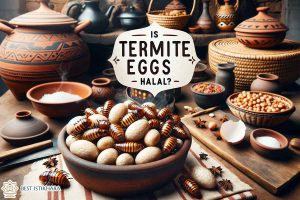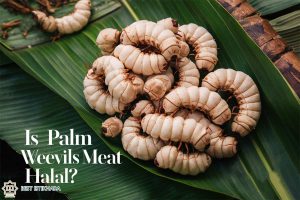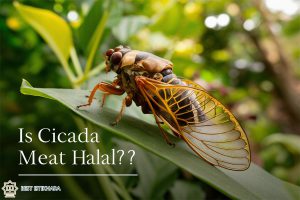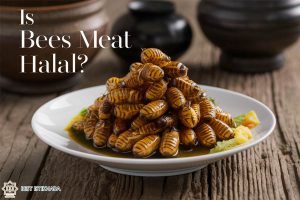Is Bee Meat Halal?
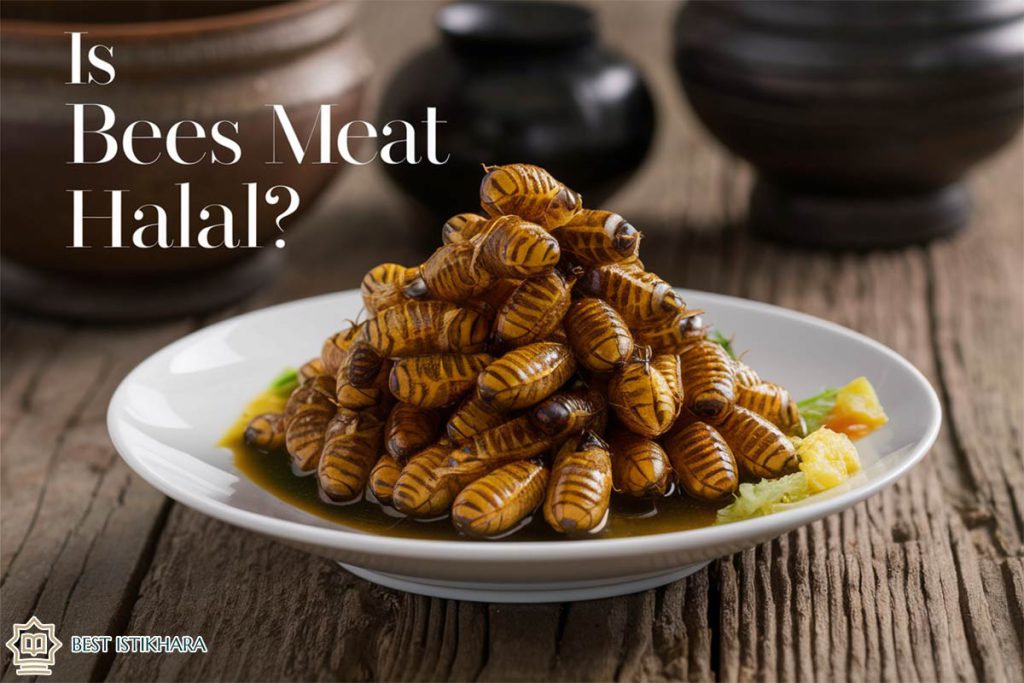
In recent years, there has been growing interest in unconventional foods as part of the global culinary scene. Among these, bee larvae have emerged as a significant topic, particularly in various Asian cuisines. As these foods gain popularity, questions arise about their compatibility with dietary laws, precisely Islamic Halal guidelines. Understanding whether bee larvae are considered Halal is essential for many Muslims who wish to explore these unique culinary options without compromising their religious beliefs. This article delves into the intricacies of Halal certification, cultural practices, and religious rulings to determine if bee larvae can be classified as Halal. Click to get more information about halal vs haram topics discussed in today’s world.
Is Bees Meat Halal?
Whether bee larvae are considered “bee meat” or Halal is complex and subject to various interpretations. Islamic dietary laws classify foods as Halal (permissible) or Haram (forbidden) based on guidance from the Quran and Hadith. Insects, in general, are a gray area. Some scholars argue that all insects are Haram, while others allow certain types based on specific conditions.
Bee larvae specifically have been debated among Islamic scholars. Some argue that since bees are mentioned positively in the Quran for their honey production, consuming their larvae may be permissible. However, others hold that because larvae are a form of insect, they fall under the general prohibition of consuming insects. The diversity of opinions often depends on regional interpretations and specific fatwas from local religious authorities. Therefore, it is crucial for individuals to consult with knowledgeable scholars or trusted Halal certification bodies to make informed decisions regarding the consumption of bee larvae.
Scholarly Opinions on the Halal Status of Bee Larvae
Islamic scholars have diverse opinions on the Halal status of bee larvae, reflecting the complexity of interpreting dietary laws. Some scholars, referencing the Quran’s favorable mention of bees and their honey production, argue that consuming bee larvae is permissible (Halal). Since bees play a beneficial role in Islamic tradition, their larvae may also be considered acceptable.
Conversely, other scholars adhere strictly to the general prohibition against consuming insects, categorizing bee larvae as Haram. They argue that despite the positive mention of bees, their larvae still fall under the broader category of insects, which is traditionally forbidden.
Regional fatwas further influence these opinions. For instance, some Southeast Asian Islamic authorities may be more lenient considering local customs and practices, while Middle Eastern scholars might take a stricter stance. Ultimately, the Halal status of bee larvae varies, and individuals are advised to consult local religious authorities for guidance.
How to Verify the Halal Status of Bee Larvae
Verifying the Halal status of bee larvae involves several steps to ensure compliance with Islamic dietary laws. First, consult with local Islamic scholars or trusted Halal certification bodies, as they can provide authoritative guidance based on regional and cultural interpretations.
Next, check for any existing fatwas or religious rulings specific to bee larvae. Many Islamic councils issue fatwas that address contemporary food items, including insects and their larvae.
Additionally, seek out Halal certification labels from reputable organizations. These certifications indicate that the product has been thoroughly reviewed and meets Halal standards.
Engage with the community and local mosques, as they can offer insights and experiences from individuals who have faced similar questions.
Finally, research is needed on the sourcing and handling of the bee larvae. Ensure that they are harvested and processed in a manner that adheres to Halal practices, avoiding contamination with non-Halal substances. By following these steps, you can make an informed decision about the Halal status of bee larvae.
Conclusion
The Halal status of bee larvae is a complex and nuanced topic, with differing opinions among Islamic scholars and authorities. While some scholars permit their consumption based on the beneficial role of bees in Islam, others classify them as Haram due to their nature as insects. Individuals should consult local religious authorities and seek guidance from trusted Halal certification bodies to ensure adherence to Halal dietary laws. By thoroughly researching and verifying the Halal status, Muslims can make informed decisions about incorporating bee larvae into their diets. Ultimately, personal consultation with knowledgeable scholars remains essential for clarity and compliance.


